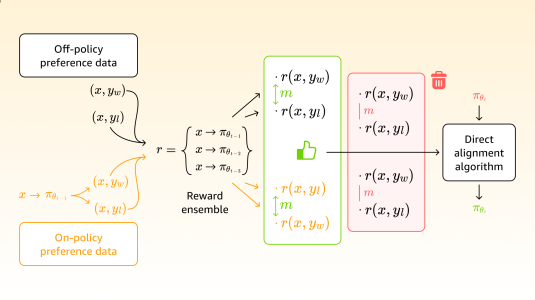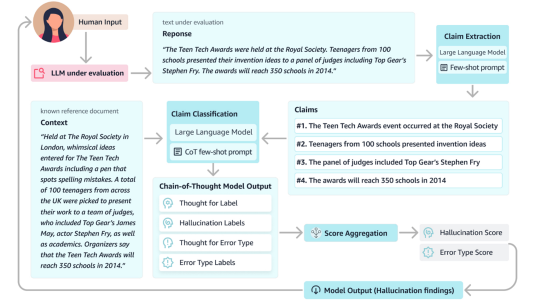Customer-obsessed science


Research areas
-
February 27, 2025Prototype is the first realization of a scalable, hardware-efficient quantum computing architecture based on bosonic quantum error correction.
-
Featured news
-
SIGMOD/PODS 20252025Compute elasticity is a primary benefit of using cloud-based data processing platforms such as Amazon EMR, where clusters can be scaled both horizontally and vertically. For example, a query scanning petabytes of data can run faster in a cluster with thousands of nodes compared to one with only a few hundred. However, not all workloads require the same computational power or have the same resource utilization
-
AAAI 2025 Workshop on Advancing LLM-Based Multi-Agent Collaboration2025Large Language Models (LLMs) have revolutionized AI-generated content evaluation, with the LLM-as-a-Judge paradigm becoming increasingly popular. However, current single-LLM evaluation approaches face significant challenges, including inconsistent judgments and inherent biases from pre-training data. To address these limitations, we propose CollabEval, a novel multi-agent evaluation framework that implements
-
2025Traditional segmentation models, while effective in isolated tasks, often fail to generalize to more complex and open-ended segmentation problems, such as free-form, open-vocabulary, and in-the-wild scenarios. To bridge this gap, we propose to scale up image segmentation across diverse datasets and tasks such that the knowledge across different tasks and datasets can be integrated while improving the generalization
-
PLDI 20252025We present the first technique to synthesize programs that compose side-effecting functions, pure functions, and control flow, from partial traces containing records of only the side-effecting functions. This technique can be applied to synthesize API composing scripts from logs of calls made to those APIs, or a script from traces of system calls made by a workload, for example. All of the provided traces
-
2025Recent advancements in 3D Large Multi-modal Models (3D-LMMs) have driven significant progress in 3D question answering. However, recent multi-frame VisionLanguage Models (VLMs) demonstrate superior performance compared to 3D-LMMs on 3D question answering tasks, largely due to the greater scale and diversity of available 2D image data in contrast to the more limited 3D data. Multi-frame VLMs, although achieving
Academia
View allWhether you're a faculty member or student, there are number of ways you can engage with Amazon.
View all






























